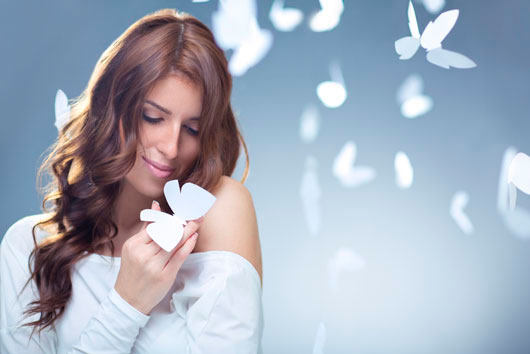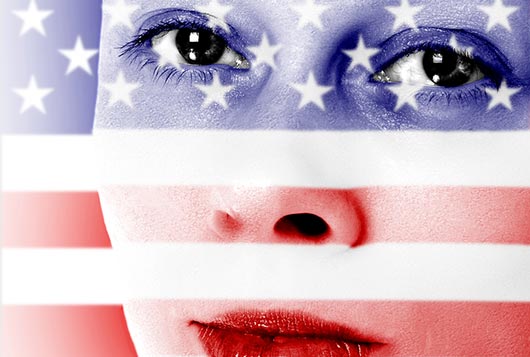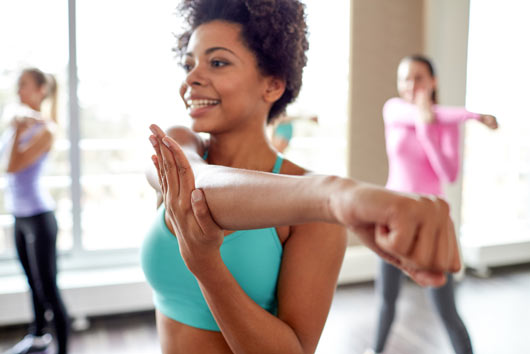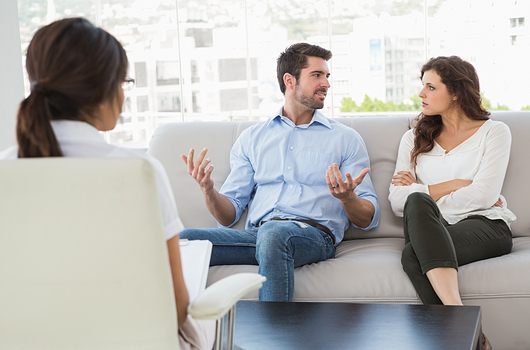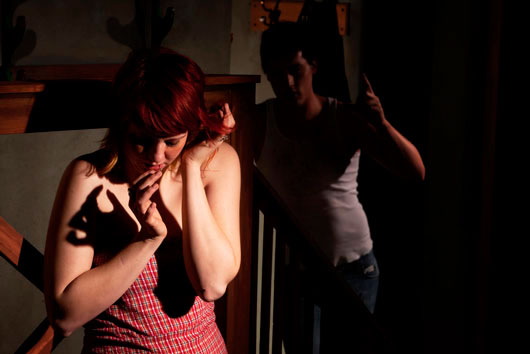
“Chris Brown, you can beat me!” some young girls tweeted. I was equal parts shocked, frightened, and disappointed. I’ve also seen the many jokes about Chris Brown’s abuse of former girlfriend and collaborator, Rihanna. I get that the girls surely are not serious (I hope), and I can take a joke just as much as the next woman. But, domestic violence is no joking matter.
I know. I’m a survivor of domestic abuse. I remember all too well my son’s father pushing me against a wall, strangling me, cutting off my air supply to the point where I almost blacked out. When the police came and took him away, one commented, “He’s just drunk.” As if his being “drunk” (which he wasn’t) would make it okay for him to damage my windpipe and make it painful for me to swallow and breathe for weeks afterward.
Read Related: How to Recognize & Help Victims of Domestic Violence
I remember him squeezing my head between his hands, popping my ears, and feeling like my skull was going to burst. And yet another time, he punched me in the stomach—when I was holding my son, no less.
These are just a few of many horrible experiences I was subjected to by this man.
I SURVIVED THE ABUSE
Fast forward over 20 years, and today I am an empowerment speaker and founder of PowerfulLatinas.com. I regularly share my experiences with other women. I tell them about what it felt like to be tied to, and in love with, this man, and how difficult it was to leave the relationship.
We had good times—it wasn’t all bad—so I would think about the sweet things he would do, and the majority of the time when he was kind, funny and devoted. I was also angry—both with myself (for allowing the behavior to happen) and with him (how could someone who’s supposed to love me do this?!?). I was conflicted, and felt guilty about “leaving” my son’s father and “breaking up a home” when he wanted to stay together, get married and have more children. What made this especially difficult is hearing the same messages from my own family who told me that I should stay with him because we (my abuser, my 2-year-old son and I) were a “family.” So many emotions and consideration went into the process of finally deciding to leave.
I know from experience the justifications we make to ourselves: He’s not usually like this, the good times are better than the bad, he’ll get better, he’s really sorry, he truly loves me. But the justifications don’t hold water. In fact, abusers tend to get worse. The abuse usually escalates, and despite the contrition of the abuser (in the moment), the “sorry” doesn’t last, nor does it prevent the abuse next time.
All of the above shows how overlooking or making light of Chris Brown’s behavior is so dangerous.
Read Related: Secret Shame, Male Victims of Domestic Violence
DOMESTIC VIOLENCE IS DEADLY
Domestic violence is real, and it’s a deadly issue. Every day in the U.S., three or more women are murdered by their husbands or boyfriends. By the time you read to the bottom of this article, hundreds of women will have been assaulted; a woman is assaulted every 9 seconds in the US, according to DomesticViolenceStatistics.org.
I am not a trained expert on domestic violence, but as a survivor, I know a lot more than I ever wanted to know about this subject, patterns of abuse, and the statistics that show how profoundly domestic violence affects our communities. Nearly 1 in 5 teenage girls who have been in a relationship said a boyfriend threatened violence or self-harm if presented with a breakup, according to DomesticViolenceStatistics.org. And the National Coalition Against Domestic Violence states, “Females who are 20-24 years of age are at the greatest risk of nonfatal intimate partner violence.”
I’ve also watched celebrities —Latino and non-Latino—“come out” about their experiences so that others can know that this problem is serious, it’s real, and we need to talk about it and get help.
WHAT MESSAGES TO YOUNG GIRLS & BOYS?
We need to change the systems and mindsets that allow this behavior to continue, to be “okay,” and to be somehow accepted in the public mind.
So when I see comments like the ones made by the young ladies (and there were many), I think to myself, “What are we teaching our girls that they can make such cavalier statements? Do they not understand the damage that happens to women and children (and anyone in an abusive relationship) when these things are allowed to continue?”
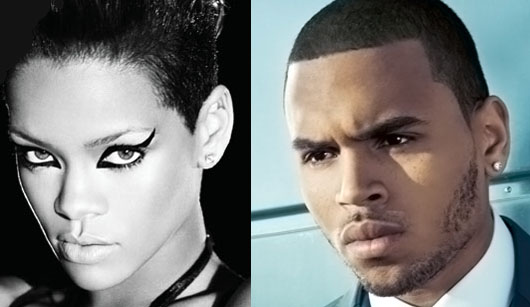
Did Grammy and NBA officials (he performed with Pitbull during halftime at the All-Star game) realize the message they sent to women? After receiving a legal slap on the wrist, five years of probation and some community service, Chris Brown has been given another hand slap in the name of entertainment. The message this sends to potential victims, including our daughters!—that a man who abuses them can get away with it, and be later rewarded, no less—is shameful, and is something we need to talk about. And what about the messages these actions are sending to men and young boys?
And what about Rihanna? What was she thinking when she decided to collaborate with him? She suffered severely at his hands. Does she think he’ll stop? Does she care about the messages she’s sending to young girls? Does she remember the photos of her bruised face we saw in the tabloids? She lived it.
FORGIVENESS IS FOR ONESELF, NOT ABUSER
I’m all for forgiveness. Forgiveness is part of the internal healing process, and something you do for YOU, after you’ve healed a wound, and are looking for closure. It allows you to let go, although it does not mean you agree with the other person’s behavior—much less would allow it to happen again.
Forgiveness supposes some level of emotional maturity, as well as release from the person who has harmed you. What’s happening with Rihanna and Chris Brown may be about forgiveness, but it’s neither truthful nor healing.
It took me years of therapy to work through what had happened to me in my relationship. I had to learn what a healthy relationship even looked like, how to set boundaries, and when and how to deal with my own emotions.
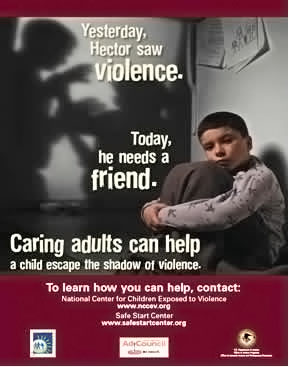 Unfortunately, the work of teaching what relationships should be—and how to healthfully deal with both positive and negative emotions—is not something that we were often taught by our parents—and it is certainly not reflected in media and reality TV.
Unfortunately, the work of teaching what relationships should be—and how to healthfully deal with both positive and negative emotions—is not something that we were often taught by our parents—and it is certainly not reflected in media and reality TV.
How ironic that we’re taught how to make our beds, brush our teeth, cook meals, do our homework, and iron clothes, but not how to tend to our emotions and work toward dealing with them positively. Our emotions direct us to identify our wants and needs, and these needs are common to all of us.
Our inner needs—such as the need for love, security, harmony, acceptance and affirmation—are things rarely discussed in the home.
Instead, we tell our children how NOT to act, rather than engaging them in talking about their emotions and how to deal with those feelings.
When young people don’t learn how to deal with their emotions, the emotions—and the needs driving them—come out anyway, they manifest themselves in different ways. And the way an abuser reacts to his own emotions may be profoundly destructive. And once those habits are in place, they are incredibly hard to break.
So how do we teach our youngsters to deal with their own emotions —and identify those who don’t know how to healthfully deal with their own—BEFORE they wind up in a destructive relationship? (Kudos to Reese Witherspoon for using the situation as a teaching moment with her own children.)
One of the key tools I used to be able to both heal, and make sense of my own emotions is Non-Violent Communication (NVC for short). The Center for Non-Violent Communication offers resources for adults, as well as books and teaching aids for parents to talk with children about how they can deal with their emotions. (Check out one of these non-violent communication resources: www.cnvc.org or
http://www.nonviolentcommunication.com/index.htm or http://nvctraining.com/. )
This is just one solution to PREVENT these kinds of issues. I encourage you to search for other ones as well. Let’s all work toward creating a world in which we take serious issues seriously, work to prevent them, and work to support and assist those who are going through them—without turning away from what’s really going on in our communities.
(Note: Domestic violence is not a uniquely heterosexual phenomenon, nor is it confined to intimate partners; although the description above is of Chris Brown and Rihanna, a heterosexual couple, partner abuse also happens among homosexual couples, and domestic violence is often enacted upon children. To learn more about how to stop domestic violence, please search local programs, or learn more at http://www.cdc.gov/violenceprevention/delta/.)
[youtube]http://www.youtube.com/watch?v=xYWxfxMOUO4&feature=player_embedded[/youtube]
Post your chance to a win a $250 Target Gift Card participating in the Reddit / Pinterest Photo Caption Contest.



